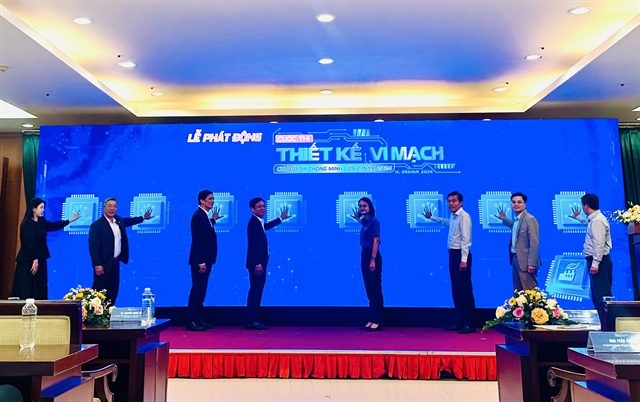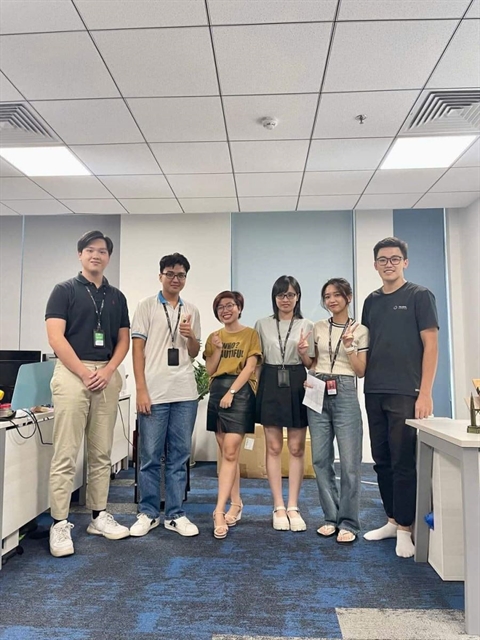 Society
Society

 |
| Nguyễn Văn Nam (second from left) with his friends. — VNA/VNS Photo |
HÀ NỘI — Inspired by the medical implications of forgetting to take medication, a young student has researched and developed a system that integrates various smart devices to monitor health indicators and a smart medicine cabinet, reminding users of their schedule and habits.
Nguyễn Văn Nam, a student of Information Technology at FPT University, impressed with his graduation project, a Management System to Support Diagnosis and Treatment.
During his studies, Nam has achieved numerous academic accolades, including winning a full scholarship and taking third prize at the Viettel 2023 World Office IT Championship.
The system integrates several IoT (Internet of Things) devices to monitor key health indicators such as heart rate, blood pressure and body temperature, while also issuing early warnings for abnormal signs or metrics.
The system emphasises data security for users' health information.
“One of the biggest challenges in developing this system was integrating hardware and software,” said Nam.
“IoT devices need to be configured for stable operation and their data must be processed in real time – a task that cannot rely solely on theoretical knowledge. Ensuring information security and safety was critical.
"Security and accuracy are vital in medical IoT solutions. To address these challenges, I conducted numerous tests, studied additional materials and sought support from lecturers and friends in my group."
Optimising medication habits
Nam's graduation project evolved from his research on applying IoT to home medication management, carried out in collaboration with his friends and lecturer Đặng Văn Hiếu.
The application uses sensors and smart devices to remind patients to take their medicine on time, while simultaneously sending real-time data to doctors and family members through a mobile app.
This research was presented at the 2024 9th International Conference on Cloud Computing and Internet of Things (CCIOT 2024), where it was praised for its comprehensive, well-balanced approach, combining as it did the theoretical and practical.
Studies presented at the conference are published and indexed by Ei Compendex and Scopus, two of the world’s leading databases.
Speaking about the idea of applying IoT to home medication management, Nam explained that it stemmed from the reality of people forgetting to take medication when busy or engrossed in work.
This situation prolongs treatment, reduces its effectiveness and increases costs, ultimately harming users' health.
"My friends and I decided to develop an IoT application for home medication management to improve public health by encouraging adherence to medication schedules and habits," the student said.
In addition to being able to be used in hospitals and clinics, the application is similar to the 'Family Doctor' model in integrating IoT.
The application is easy to use in monitoring the health of each patient at home, helping to improve the quality of remote medical examination and treatment.
In the future, the IT student plans to continue researching and upgrading the system with additional health care features.
"I hope to integrate artificial intelligence (AI) to analyse and optimise medication habits while expanding connectivity to other smart medical devices and building a centralised medical data platform to support doctors and families in monitoring patients’ health remotely," he added. — VNS